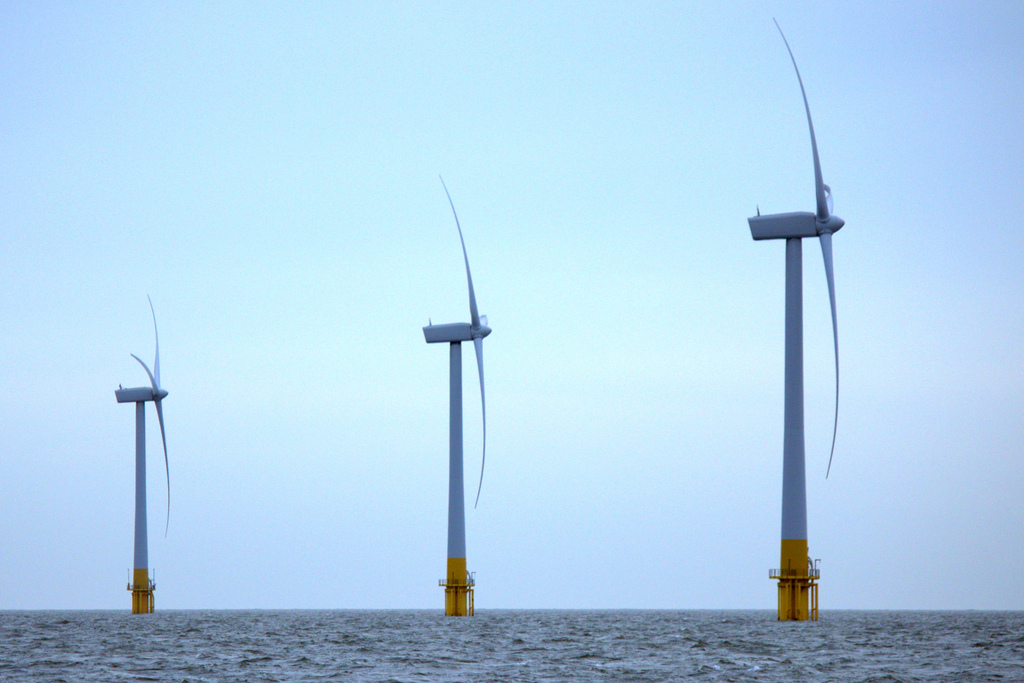From Brexit to Trump, it may seem like 2016 was a bit of a disaster in the climate arena.
But look closely enough and you’ll see it wasn’t all bad news in Britain.
DeSmog UK takes you through five positive things that happened for clean energy and climate policy this year.
Coal Falls
Following an announcement in 2015 to phase out unabated coal power generation, the UK government launched a consultation on exactly how that would happen in November this year.
In 2015 the carbon price floor – a minimum price set by the government determining how much power generators in Britain have to pay to pollute – doubled from £9 to £18 per tonne. But instead of the carbon price floor continuing to rise, as it was originally intended to, it has now been frozen until at least 2020.
However, along with low gas prices and a growth in renewable energy, it was enough to kick-start a huge reduction in coal demand. This year, coal power plants Ferrybridge C, Rugeley and Longannet closed and Drax all converted from coal to biomass.
This led to a record low amount of coal-generated electricity during the second quarter of 2016, falling by 71 percent from 15.9 terawatt hours last year to 4.6 terawatt hours. And monthly coal use in the power sector is down 70-80 percent compared to last year.
Renewables Rise
During 2016, for the first time ever, over half of the UK’s electricity came from low-carbon sources.
A new study by energy company Drax and Imperial College London found that during July and September 50.2 percent of the country’s electricity came from a mixture of nuclear power, hydro, wind, and solar.
On top of this, and despite subsidy cuts, solar power generated more electricity during six months in 2016 than coal. During April to September, solar panels provided 5.2 percent of the UK’s electricity demand, compared to 4.7 percent from coal during the same period.
Meanwhile in Scotland, a very windy day in August meant that wind turbines were able to produce enough electricity to cover the equivalent of the entire country’s electricity needs for a day.
Green Economy
Clean energy investment also continues to be good news for the economy.
According to a study by the Office for National Statistics in May, low-carbon companies, including those providing renewable energy, energy-efficient products, and nuclear power, bring the UK £46 billion a year.
Scotland is leading the way with the highest percentage of low-carbon businesses with 5.2 percent, closely followed by England on 4.4 percent, Wales on 3.9 percent, and Northern Ireland on 3.2 percent.
Not only do these companies bring in huge sums of money, they also employ a combined 240,000 people across the country.
Fossil Fuel Divestment
The campaign to get companies and institutions to cull investments in fossil fuels also gathered steam this year.
UK universities are leading the way on fossil fuel divestment, with a quarter of all universities now having pledged to divest.
The pressure is now on those still holding out, such as influential institutions like Cambridge University.
Winds of Change
The second phase of Hornsea Project Two, the multibillion-pound wind turbine development spanning an area five times the size of Hull, has been given the go-ahead.
If the final investment from Danish company Dong Energy goes ahead, the windfarm could provide up to 1.8 million UK homes with electricity.
It could take up to two years for a final decision to be made, but if all the future consultations are approved, construction is expected to begin in 2022.
Happy 2017
So it wasn’t all bad.
If the government sticks to phasing out coal and sticks to its guns on environmental regulation during the Brexit negotiations, 2017 could yet be a good year for climate and energy policy.
Follow us on twitter and facebook to make sure you’re always up to date. And sign up to our weekly newsletter below for regular round-ups.
Photo: Rob Faulkner via Flickr | CC 2.0
Subscribe to our newsletter
Stay up to date with DeSmog news and alerts







